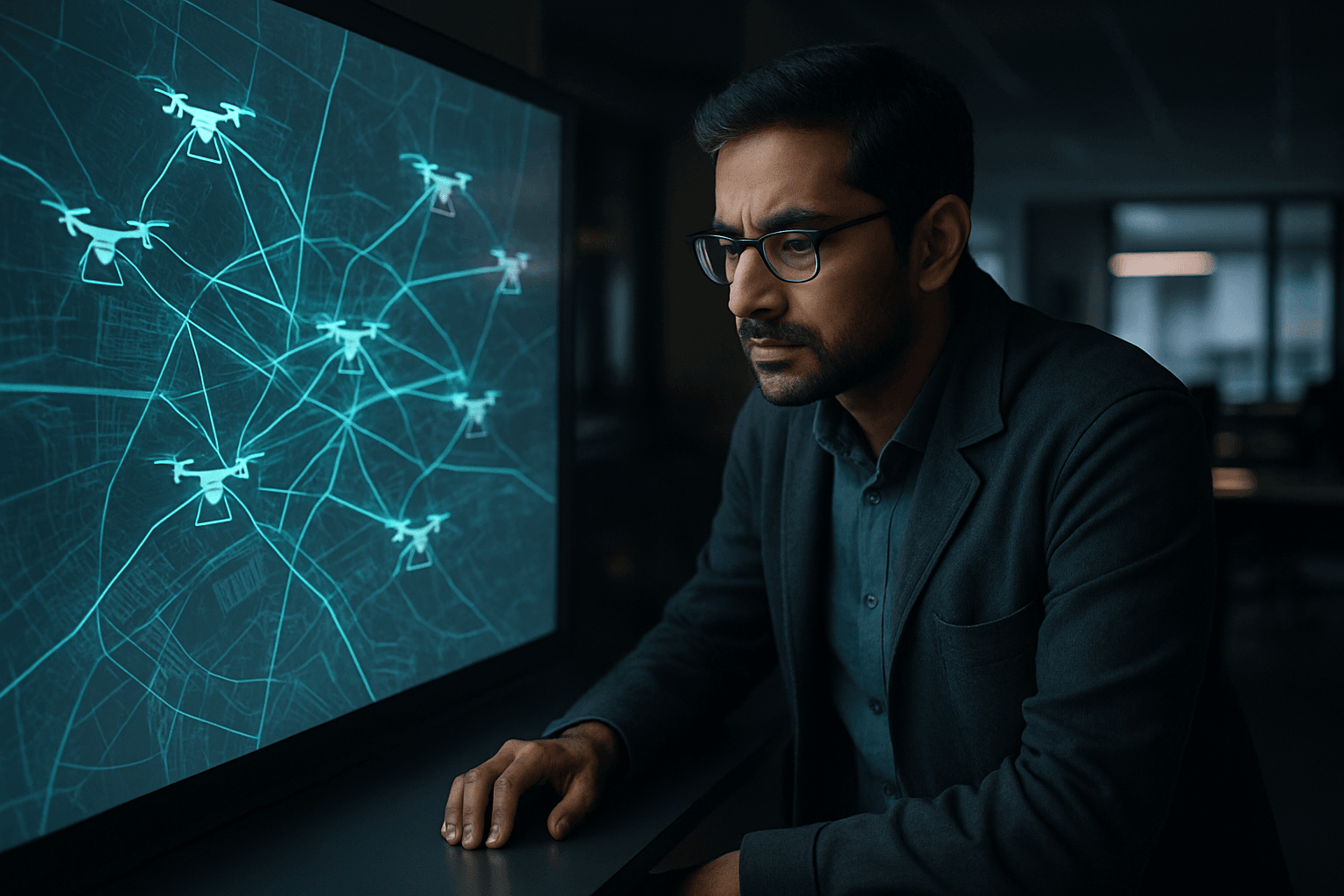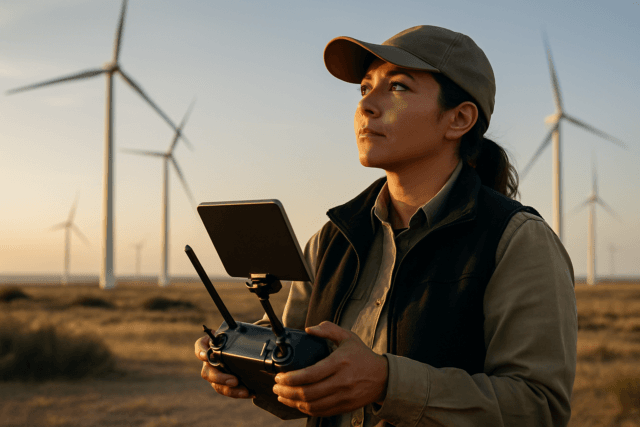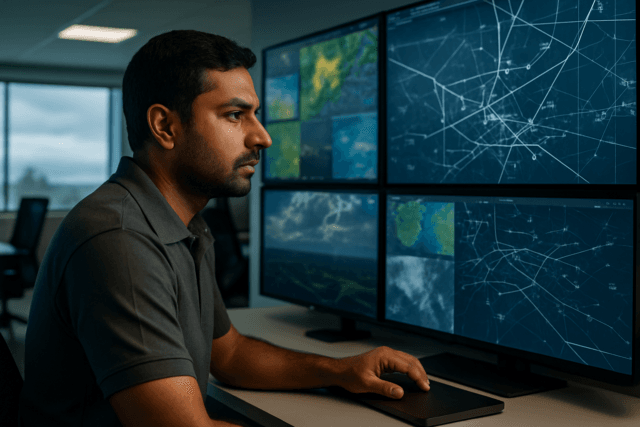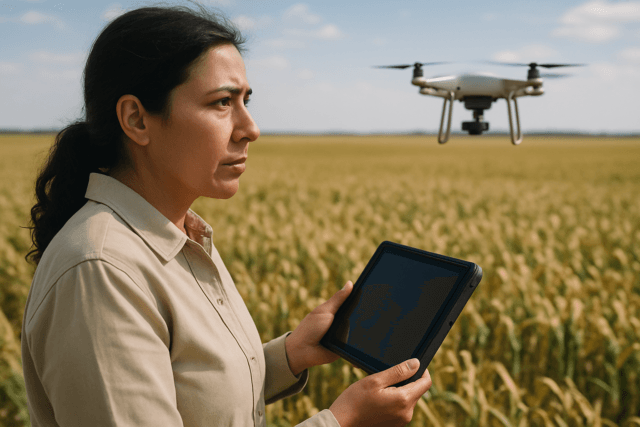The promise of drone delivery services, propelled by advancements in Artificial Intelligence (AI), envisions a future of rapid, efficient, and cost-effective logistics. From delivering essential medical supplies to remote areas to streamlining urban e-commerce, AI-powered drones offer transformative potential. However, as these autonomous flying machines increasingly navigate our skies, a complex web of ethical considerations surrounding their AI-driven routing mechanisms emerges, demanding careful scrutiny and proactive solutions.
Privacy and Surveillance Concerns
One of the most significant ethical dilemmas associated with AI in drone delivery routing revolves around privacy. Drones, equipped with high-resolution cameras and GPS systems, collect vast amounts of data as they traverse various environments, including private property.
Inadvertent Data Capture
Even when their primary mission is package delivery, drones can inadvertently capture images, video footage, and location data of individuals in private settings without their knowledge or consent. This raises concerns about surveillance and the erosion of personal privacy, as people may feel constantly observed, leading to public discomfort and potential legal challenges. The sophisticated nature of modern UAV cameras, which can include military-grade capabilities like facial recognition software, exacerbates these fears.
Data Collection and Usage
Beyond accidental capture, there are concerns about how the data collected by drones during their operations might be used, stored, and protected. Companies must ensure secure data encryption protocols and transparency in how data is obtained, used, and stored to build and maintain public trust. Misuse of this data, such as for targeted advertisements or customer profiling without consent, presents a clear privacy risk. Regulations often lag behind the rapid technological advancements in autonomous drones, creating a “regulatory gap” that allows for potential misuse and raises questions about accountability and oversight.
Safety and Public Trust
The safe operation of drones is paramount, and AI plays a crucial role in enabling obstacle avoidance and navigation. However, the reliance on AI for routing also introduces new ethical considerations related to safety and public trust.
Collision Risks and Malfunctions
The potential for drones to collide with other aircraft, buildings, vehicles, pedestrians, or even wildlife is a major safety concern. While AI algorithms are designed to detect and avoid obstacles in real-time, relying on advanced computer vision and sensor technologies, the possibility of system malfunctions or unforeseen environmental challenges (like strong winds or extreme temperatures) cannot be entirely eliminated. Drone operators have an ethical obligation to ensure their delivery aircraft do not pose a threat to the public, property, or wildlife.
Accountability in Accidents
When an autonomous drone malfunctions and causes an accident, determining legal liability becomes a complex issue. Existing legal frameworks for product liability and aviation law were not designed for autonomous, low-altitude flying robots. The question of who is legally responsible—the drone manufacturer, software developer, delivery company, or the AI system itself—is a significant legal and ethical challenge. Clear accountability standards and robust insurance protocols are necessary to compensate victims and build public confidence.
Algorithmic Bias and Fairness
AI algorithms, including those used for drone routing, are trained on data, and inherent biases in this data can lead to discriminatory or unfair outcomes.
Biased Route Optimization
If the data used to train AI routing algorithms reflects existing socioeconomic inequalities, the drone delivery service could inadvertently perpetuate or exacerbate them. For example, if historical delivery data primarily covers affluent areas, the AI might optimize routes and service availability more effectively for these areas, leading to faster or cheaper deliveries there, while underserved communities receive slower or more expensive service, thus exacerbating the digital divide. This “algorithmic bias” can arise throughout the entire lifecycle of model development, from data collection to deployment.
Impact on Accessibility and Equity
The ethical design of AI requires engineers to consider the context in which AI-powered products operate and for whom the AI works. Companies must actively work to train AI on diverse data and implement strong rules to prevent discrimination to ensure fair outcomes and widespread accessibility. The goal should be to leverage drone delivery to expand access to remote and rural areas, not to deepen existing disparities.
Socioeconomic Impact
The widespread adoption of AI in drone delivery routing also brings broader socioeconomic implications that warrant ethical consideration.
Job Displacement
One concern is the potential for job displacement among traditional delivery drivers as drone services become more prevalent. While advocates argue that drone delivery creates new types of jobs (e.g., maintenance staff, ground control personnel, programmers), the net impact on employment and the need for workforce retraining are significant ethical considerations.
Noise Pollution and Environmental Concerns
While drones are often heralded as an environmentally friendly alternative to traditional vehicles, especially for last-mile deliveries, they introduce new environmental concerns like noise pollution. The distinctive “buzzy” sound of drones requires careful consideration of flight paths and schedules in residential areas to minimize disturbance. Furthermore, the production and disposal of drones, particularly their batteries, carry their own environmental costs that need to be addressed.
Cybersecurity and Malicious Use
As connected devices, AI-powered drones are susceptible to cybersecurity threats, raising concerns about unauthorized access, hacking, and malicious use.
Hacking and Unauthorized Control
The autonomous nature of these drones introduces security vulnerabilities. Unauthorized access or hacking of drones could lead to misuse, including unauthorized surveillance, data breaches, or even weaponization. Securing communication and control systems is essential to mitigate these risks. Robust encryption and authentication measures are crucial to prevent unauthorized access and control.
Dual-Use Dilemmas
The underlying AI technology developed for civilian drone delivery can also have military applications, raising “dual-use” ethical dilemmas. The prospect of AI-equipped drones making autonomous combat decisions, as seen with systems like the Saker Scout, raises profound ethical questions about accountability for lethal decisions and the potential for destabilizing arms races.
Conclusion: Charting an Ethical Course
The integration of AI into drone delivery routing offers immense benefits but is fraught with complex ethical considerations. Addressing issues of privacy, safety, algorithmic bias, socioeconomic impact, and cybersecurity is crucial for the responsible development and widespread adoption of this transformative technology. This requires a collaborative effort from technology companies, logistics providers, regulatory bodies, ethicists, and the public to establish comprehensive ethical frameworks, robust regulatory standards, and transparent operational guidelines. By prioritizing ethical design, accountability, and continuous oversight, society can harness the full potential of AI-powered drone delivery while safeguarding public trust and well-being.





